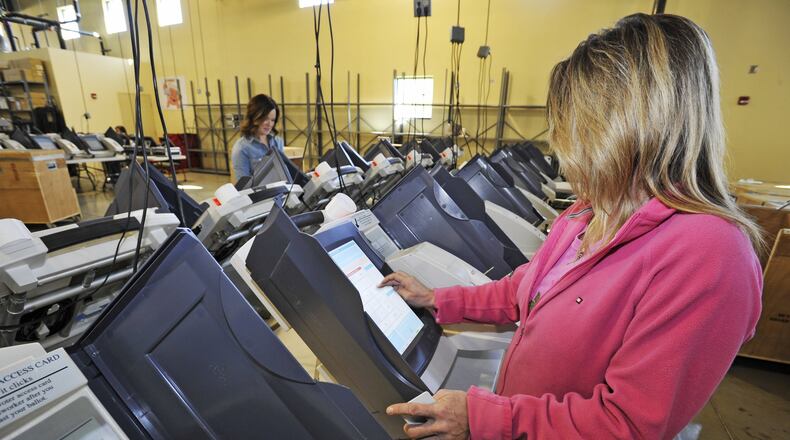The commissioners and the elections board must decide by the spring. The Ohio Secretary of State has required any board of elections considering purchasing new equipment to it in place for the November 2019 general election. That means the county must have the new machines in their possession by July to test and customize the machines to their protocols.
RELATED: Butler, Warren election boards in line for state voting machine money
If new machines cannot be used by this November’s election, they are prohibited from using them in the 2020 presidential election cycle. They would have to use their 2005-purchased machines until 2021.
That would put the Butler County Board of Elections in a difficult position because the office's 14-year-old machines break down more frequently. The elections board's database administrator, Jay Klein, previously wrote to the two election directors that his confidence level with the system "is decreasing."
Board member Chris Wunnenberg said the board was told by officials with Dominion, which maintain the current machines, “There aren’t any (spare) parts there.”
The Butler County Board of Elections has about 1,600 machines but typically uses between 1,200 and 1,300 in any given election depending on the number of registered voters. Ohio law requires one voting machine for every 175 registered voters. Butler County, as of the November 2018 election, has 254,748 registered voters.
Ohio allocated $114.5 million to local boards of elections for new voting equipment, and Butler County will receive $3.2 million. However, Butler County would be responsible for any costs above that allocation. Based on the county’s need — and depending on which of the five state-approved vendors the board chooses — it’s likely the new voting machines will cost more than the state’s allocation. Board members, however, are interested in looking at both purchasing and lease options.
One option the elections board may consider is buying the bare minimum of voting machines to get the office through the 2020 presidential election, then consider purchasing additional machines after that election.
RELATED: Commissioner: Reinstate rainy day funding in $102 million general fund budget
Wunnenberg said while that option was on his mind, that might be “penny wise and pound foolish” by trying to save a few bucks now but then needing to buy more later one — and potentially having to spend more money.
Prices from the state contract are valid through 2023.
Eric Fletcher, Information Services Director for the Butler County Commission, told the election board members the commissioners “will want to see a lot of details, as far as pricing.”
Board member Todd Hall said before he considers supporting any one option, he needs more “definitive answers” to some of his concerns. One concern is specific terms of any warranty, including the length.
“It’s their job to provide us flexibility to fit our needs and wants,” he said. “We need a product that’s going to last 10 or 15 years, hypothetically, because we’ve maintained it.”
About the Author

